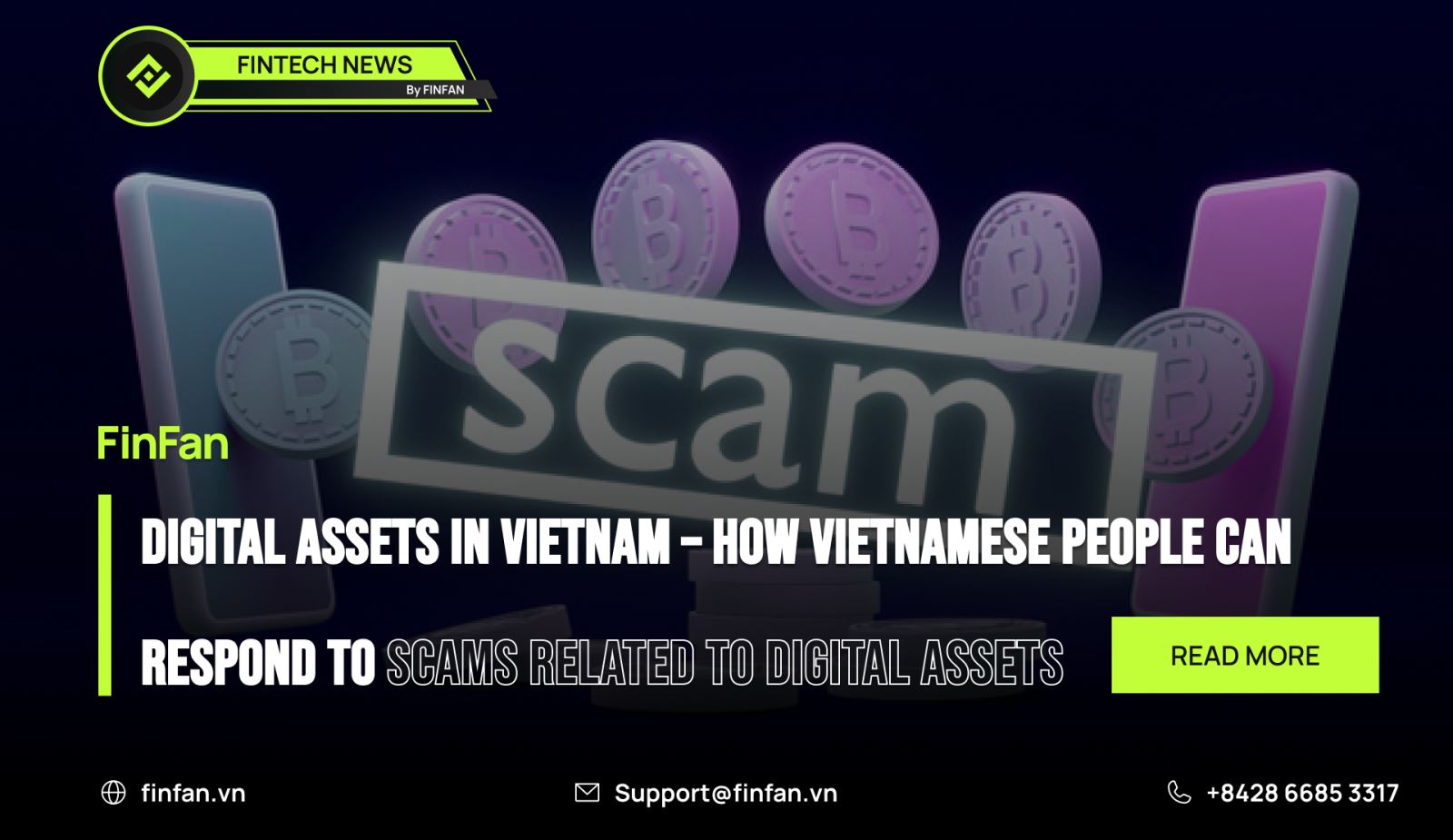Digital Assets in Vietnam – How Vietnamese people can respond to scams related to digital assets?

How Vietnamese people can respond to scams related to digital assets. This is a really difficult problem for the fans of crypto in Vietnam when the government hasn’t promulgated appropriate policies to protect users against the dangers posed by digital asset creators.
Some statistics show the growth of digital assets
On global
According to the latest research, it is estimated that the digital asset turnover in the market will reach 56,420 million USD in 2023 and is expected with an annual growth rate of about 16.15%, this figure will increase to 102,700 million USD and will reach 994.30 million users by the end of 2027.
In Vietnam
In a few recent articles, FinFan has also presented some interesting reports about the digital asset market in Vietnam such as:
- Vietnam is ranked 3rd on this statistic in terms of the number of cryptocurrency holders in the world with more than 25 million people (equivalent to a quarter of the population).
- Vietnam leads globally in cryptocurrency adoption
All of the above indicators partly show that the Vietnamese people's acceptance of this new asset class is very large. At the same time, Vietnam is also one of the Southeast Asian countries with a very high level of updating technology trends of the world.
The successful organization of blockchain application events such as GM Vietnam Blockchain also speaks to the rapid development of this technology in the S-shaped country.
The current situation of the digital asset market on global and in Vietnam recently
On global
After a series of scams and bankruptcies in the digital asset market were revealed in the mid to late 2022 such as:
- The property scam of tycoon Luna (Do Kwon)
- The bankruptcy of Three Arrows Capital (one of the leading cryptocurrency investment funds in the world at that time)
- The most serious is the bankruptcy of the crypto exchange FTX (which used to be the second largest in the world and has saved many large funds from bankruptcy over the years).
Governments around the world have started to be more cautious and have begun to issue some laws for these types of digital assets, such as:
- *The MiCA law, which is expected to come into force in 2024, is part of the European Commission's (EC) goal to establish a regulatory framework for the application of Blockchain and digital assets in the financial services industry.
- The United States is approaching digital assets and cryptocurrencies by developing new regulations and policies to ensure safety, transparency, and state-level legal compliance for financial-related activities. product number. The states have finer detailed laws than the federal regulations.
- In South Korea, the National Assembly passed the Virtual Asset User Protection Act in early July 2023.
- Hong Kong is evolving into an Asian fintech hub. Laws issued and adjusted for virtual assets and cryptocurrencies issued by the Securities and Futures Commission (SFC) will apply from June 1, 2023.*
In Vietnam
Due to the lack of a specific legal corridor, some digital asset profiteers are becoming more and more rampant.
By creating a virtual fraudulent multi-level project impersonating digital assets, these subjects have created a lot of fraudulent ghost projects to lure people to invest in and then lose all their money (the My Alladinz project in 2017 is a prime example).
At the present time, taking advantage of people's lack of understanding about the digital currency mining process, the Pi Network project (which did not start in Vietnam) is still a good bait to attract some gullible investors (especially the elderly) with unbelievable valuations (7.2 billion VND for 1 Pi).
The scary thing about this project is not that it lures users to mine Pi on their phones (because it costs users nothing), but it comes from pushing the ghost valuation too high for these kinds of properties has provoked greed in people. Then at some point, the scammers will start selling Pi at a cheaper price and incite users to buy that amount of virtual Pi (exchange real money for virtual money).
Should the completion of the digital asset legal corridor in Vietnam take place and how does it affect this new asset class in Vietnam?
Although blockchain can still be applied in a lot of other fields such as healthcare, education, etc. However, cryptocurrencies, crypto assets, virtual assets are the most popular applications of Blockchain.
**In integration and development, the recognition of "virtual property" as property in the Civil Code will create a solid legal basis for identifying transactions related to virtual assets as assets in the transaction. civil service to be able to establish ownership; at the same time creating a basis to solve the increasing crimes, theft and fraud of "virtual property".**
It is for that reason that fraudsters often target these types of blockchain technology to carry out their transactions and because of this, startups on this field can’t open in Vietnam.
That's why according in the interview with VNEconomy, Ms. Hong Hanh Pham, The Department of Economic Affairs, Office of the National Assembly, said that Vietnam still does not have a specific legal corridor to promote startups in the Blockchain field, especially there is no legal framework related to raising capital via blockchain and the issuance of crypto-assets, cryptocurrencies (such as ICOs, ITOs or STOs) and trading of crypto-assets, cryptocurrencies, which are primarily concerned with the operation of exchanges for crypto-assets, money encode.
If there is a suitable legal framework, the management of assets, raising capital for startups, and applying this technology will be more effective, Ms. Hanh continued.